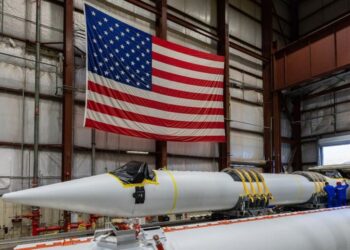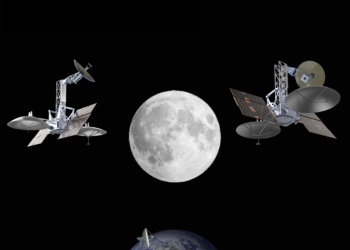ABS signs major Intersputnik lease deal
The Russian space organisation Intersputnik has signed a long-term multi-transponder capacity on Asia Broadcast Satellite’s ABS-2 spacecraft. It is the largest single lease signed for ABS-2 to date.
Intersputnik will use Ku-band capacity from the ABS-2…
The Russian space organisation Intersputnik has signed a long-term multi-transponder capacity on Asia Broadcast Satellite’s ABS-2 spacecraft. It is the largest single lease signed for ABS-2 to date.
Intersputnik will use Ku-band capacity from the ABS-2 beam focused on Russia and the CIS region. This is one of ABS’ largest markets, according to CEO Tom Choi.
While speaking on a panel at the Satellite 2010 conference in Washington DC, Choi said that the company has a US$250m backlog in the Russian market on ABS-2, which is one of the largest commercial satellites ever commissioned. It will be launched in 2012.
In the announcement of the Intersputnik deal he said: “ABS has been in partnership with Intersputnik since the inception of ABS in 2006. We are currently providing Intersputnik with capacity on ABS-1 and also work very closely with Intersputnik on a number of different strategic opportunities. This agreement for new capacity on ABS-2 signifies the close, long-term, strategic relationship with Intersputnik and our continued support for their long-term business objectives.”
Intersputnik leases capacity to telcos, broadcasters and other corporate customers, both on its own and in partnership with other satellite operators.
Stefan Kollar, deputy director general of Intersputnik, commented: “We look forward to the launch of the most advanced satellite ABS-2 in the Asia Pacific region and the start of its commercial service in 2012. Considering the acute shortage of satellite capacity, this spacecraft’s resource is indispensable on the rapidly growing telecommunications market in Russia.”
ABS has also signed a three-year multi-transponder deal on ABS-2 with another existing ABS-1 customer, the Iraqi VSAT company ICS technologies.
ABS-2 is being built by Space Systems Loral and financed through the US ExIm bank. At Satellite 2010 Choi stated that the company is looking to further expand its fleet capability.
He said: “We are constantly looking for new, well-co-ordinated orbital slots. We are going to be looking at different types of financing such as non-public sources of capital, high yield bonds, a possible future listing of the company, or additional private equity investment.”








